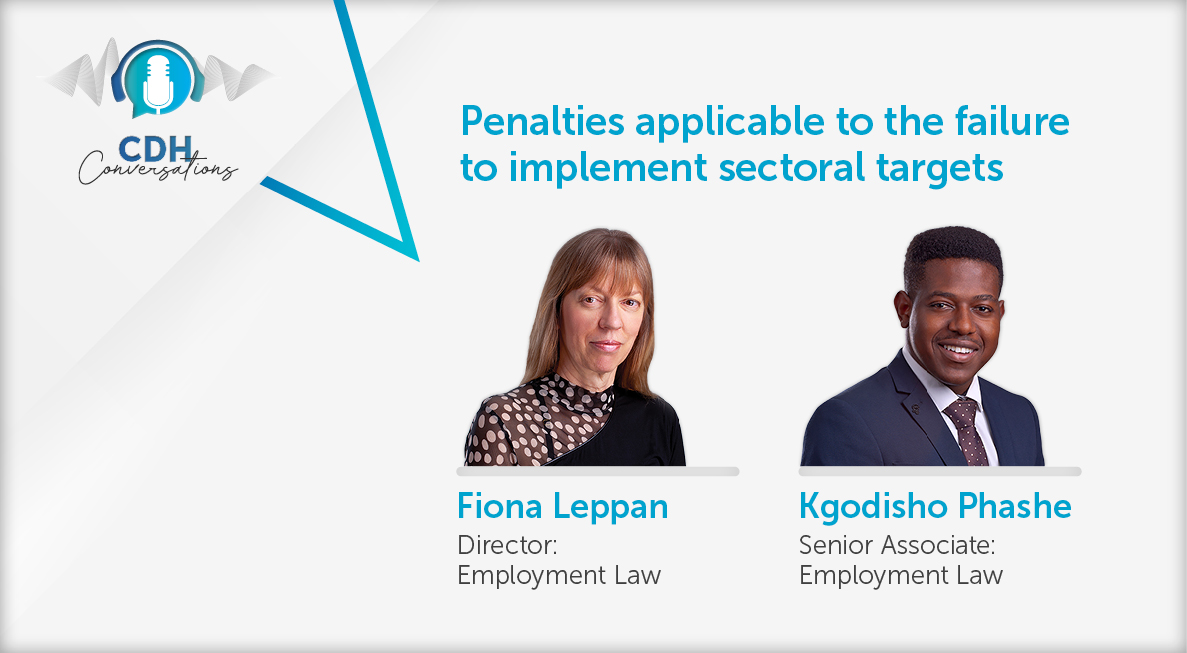Annual increase to the national minimum wage
At a glance
- The National Minimum Wage Act establishes the national minimum wage (NMW) to improve wages for low-paid workers and protect them from unreasonably low wages.
- The Minister of Employment and Labour determines the adjustment to the NMW annually based on recommendations from the National Minimum Wage Commission.
- The adjusted NMW rates for 2022 have been published, increasing the NMW to R23.19 per hour, with equalized rates for farm workers and domestic workers. The minimum allowances for learnership agreements and sector-specific minimum wages have also been increased. These changes will be effective from 1 March 2022.
In terms of section 6(5) of the Act, the Minister of Employment and Labour (Minister) must, by a date fixed by the President, determine the adjustment to the NMW, and by notice in the Gazette, amend the NMW contained in schedule 1 and 2 of the Act.
The National Minimum Wage Commission (Commission) reviews the NMW and provides a report of recommendations to the Minister in respect of any adjustments to the NMW annually as required by section 6(1) of the Act. Click here to read the CDH Alert from 10 January 2022 on the Commission’s recommendations for 2022.
In accordance with the requirements of section 6(5) of the Act, the Minister published the adjusted NMW rates in Government Gazette No. 45882 on 7 February 2022, increasing the rates in excess of the Commission’s recommendation, as follows:
- The NMW increases from R21,69 to R23,19 for each ordinary hour worked;
- Farm workers are entitled to R23,19 per hour;
- Domestic worker rates have been equalised after a progressive equalisation period and domestic workers are now entitled to R23,19 per hour, increasing from an hourly rate of R19,09; and
- Workers employed on an expanded public works programme are entitled to R12,75 per hour, increasing from an hourly rate of R11,93.
Schedule 2 of the Act, which pertains to the minimum learnership allowance for workers who have concluded learnership agreements contemplated in section 17 of the Skills Development Act 97 of 1998, has been amended. The minimum weekly allowance a learner is entitled to is based on the National Qualification Framework (NFQ) level of the learner and these allowances have now been increased and will therefore impact the cost of learnership agreements.
Contract Cleaning Sector
The Minister has increased the minimum wage for the Contract Cleaning Sector as follows:
- Area A, which consists of the Metropolitan Councils of the City of Cape Town, Greater East Rand Metro, City of Johannesburg, Tshwane and Nelson Mandela, minimum hourly rate has increased to R25,52;
- Area B, which consists of all areas in KwaZulu-Natal, shall continue to be determined by the Bargaining Council for the Contract Cleaning Service Industry; and
- Area C, being the remaining areas in the Republic, minimum rates per hour have been increased to R23,27.
Wholesale and Retail Sector
The Minister has further included the Wholesale and Retail Sector in the national minimum wage increase this year. The increases are subject to the geographical area as set out in Area A and B. Minimum wage rates prescribed for Area A are incrementally higher than those prescribed for Area B.
The minimum rate increases in the retail sector differ according to recognised job categories. For example, a general assistant, trolly collector, security guard, forklift operator, and driver in Area A, are entitled to the NMW while the Minister has gone a step further to prescribe minimum hourly rates in excess of the NMW for the higher-ranking positions in the wholesale and retail sector too.
The changes introduced by the Minister will take effect from 1 March 2022.
The information and material published on this website is provided for general purposes only and does not constitute legal advice. We make every effort to ensure that the content is updated regularly and to offer the most current and accurate information. Please consult one of our lawyers on any specific legal problem or matter. We accept no responsibility for any loss or damage, whether direct or consequential, which may arise from reliance on the information contained in these pages. Please refer to our full terms and conditions. Copyright © 2026 Cliffe Dekker Hofmeyr. All rights reserved. For permission to reproduce an article or publication, please contact us cliffedekkerhofmeyr@cdhlegal.com.
Subscribe
We support our clients’ strategic and operational needs by offering innovative, integrated and high quality thought leadership. To stay up to date on the latest legal developments that may potentially impact your business, subscribe to our alerts, seminar and webinar invitations.
Subscribe




